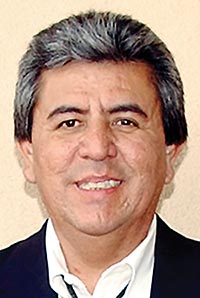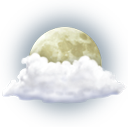
Publisher’s Column: Suicide prevention is everyone’s business

Tom Arviso, Jr., is the CEO and Publisher of Navajo Times Publishing Co., Inc.

Tom Arviso Jr.
The month of September serves an unofficial starting block for many events and functions all across our nation. September traditionally begins with the much-anticipated three-day Labor Day holiday weekend. After that, the pace picks up and September quickly moves our lives into a busy schedule consumed with a brand new school year, the fresh start of the fall college classes, and shorter sunshiny days.
It’s like reality suddenly sets in after Labor Day that our kids are actually back in school, the cold weather is coming soon, and the Thanksgiving and Christmas holidays are approaching way too fast.
For sports fans, September brings the long-awaited kickoff of the fall sports season. At local schools you have volleyball, cross-country, golf and Friday Night Lights football. At home, you have hundreds of hours filled with college and NFL football games, NASCAR, the PGA Tour, horse racing, the PBR, and the start of major league baseball playoffs. Isn’t September a great month?
Across Navajoland, September is the time to get moving on gathering and cutting firewood for the upcoming cold weather months. It’s the moment to stock up on hay and feed and preparing the house for the winter season. The early morning chill is a signal that the long dog days of summer have come to an end.
And, this year it appears that by the end of September there’s going be a good crop of pinons that will be ready for the picking, too. Soon you will be hearing the sound of shells cracking and people selling pinons everywhere.
For the Navajo Nation government, the end of September marks the end of the 2015 budget for most tribal government departments and programs. A lot of these offices are patiently awaiting the start of the new 2016 Fiscal Year on Oct. 1 so they can start fully operating and spending again as they conduct business.
So basically September is a time for us to get prepared for what we may be facing the rest of this calendar year and up to the beginning of spring of next year.
On a more serious note, across the United States and throughout Indian Country, the month of September is also National Suicide Prevention Month.
According to the National Suicide Prevention Lifeline, more than 40,000 people in the U.S. take their own lives each year. In Arizona, suicide is the second-leading cause of death for teenagers 15 to 19 years old. Many of those who die from suicide suffer from a treatable mental illness. There are multiple causes of suicide but a majority of these causes go unrecognized or they just weren’t treated.
People of all nationalities and cultures need to get more involved in suicide prevention and that is why the month of September is dedicated to this cause. It is a national effort to bring forth public information on this public health issue that affects all of us.
As a journalist working at the Navajo Times, I hear and learn about the suicides that have occurred across our beautiful land and each time it brings forth a sad, helpless feeling in my heart. It is a fact that our Navajo Nation has experienced too many losses of life for many years now, due to suicide.
Sadly, we have been consistently hearing of the passing of our young children due to suicide. However, that situation is not unique to the Navajo Nation but rather it is a trend that is and has been experienced by Native people throughout Indian Country and by all races and cultures across the U.S.
Also, suicide is not just limited to our younger generation. There are people of all ages and from all walks of life that die each day from suicide. There is no discrimination involved when it comes to a person taking his or her own life.
Suicide is a public health issue and it needs to be discussed openly. Not only in the month of September but all of the time. Often, there are warning signs displayed by people – but not all people – who may be thinking about suicide, or who died from suicide.
According to the National Suicide Prevention Lifeline, some of those warning signs are:
- Talking about wanting to die
- Looking for a way to kill oneself
- Talking about feeling hopeless or having no purpose
- Talking about feeling trapped or in unbearable pain
- Talking about being a burden to others
- Increasing the use of alcohol or drugs
- Acting anxious, agitated or recklessly
- Sleeping too little or too much
- Withdrawing or feeling isolated
- Showing signs of rage or talking about seeking revenge
- Displaying extreme mood swings
Now, if someone you know exhibits warning signs of suicide, then what you should do is:
- Do not leave the person alone
- Remove any firearms, alcohol, drugs or sharp objects that could be used in a suicide attempt
- Call the U.S. National Suicide Prevention Lifeline at 800-273-8255
- Take the person to an emergency room or seek help from a medical or mental health professional
I am not an expert on the subject of suicide prevention but I am learning more with each passing day and incident. I’m also finding out about how affected families and friends have to deal with the pain, heartache and loneliness that accompany suicide loss. There are also feelings of love, understanding and forgiveness.
As I drove to work here in Window Rock during the week of the Navajo Nation Fair, I listened to a public announcement on the radio presented by LoRenzo Bates, Speaker of the Navajo Nation Council. He said that the tribal council was quite aware of the local issues dealing with suicide among our Navajo people, especially with our youth, and that they were greatly concerned.
The Speaker explained that his fellow council delegates had shared stories of incidents of suicide all across the Navajo Nation and from their respective chapters, and they all agreed that they had to do something about it.
Speaker Bates then said that the entire tribal council pledged to assist with the suicide prevention effort across Navajoland and they would utilize the resources they had available to make that happen. The Speaker also encouraged all people — Navajo and non-Navajo — to talk to their children and families and to communicate with relatives and friends, about suicide prevention.
I was encouraged to hear Speaker Bates’ words and I agree with him and his fellow council delegates and I support their efforts to take action on this serious issue. They are demonstrating true leadership in this manner.
Now, what we can all do today and tomorrow, as Navajo People, is to work and communicate with each other to promote suicide prevention. We don’t want to lose any more innocent lives — young or old — and we owe it to our elderly and our future generations to do something about it, now.
By working together we can make a difference. Please know and remember that suicide prevention is everyone’s business.
To read the full article, pick up your copy of the Navajo Times at your nearest newsstand Thursday mornings!
Are you a digital subscriber? Read the most recent three weeks of stories by logging in to your online account.








 Highway 264,
Highway 264, I-40, WB @ Winslow
I-40, WB @ Winslow